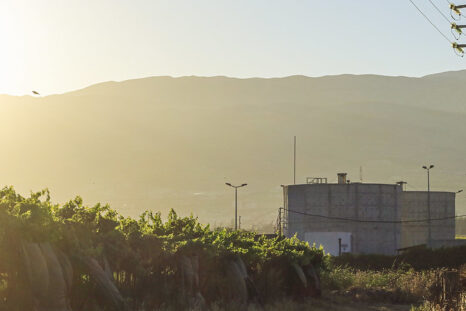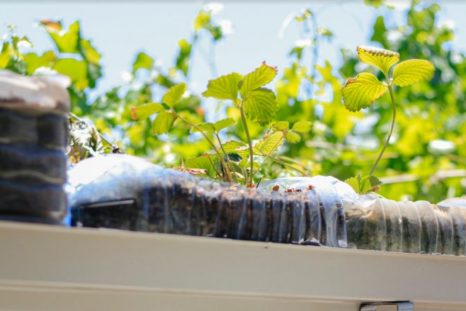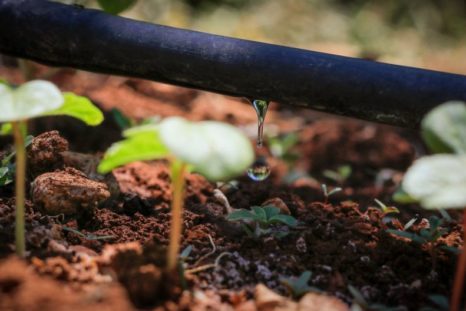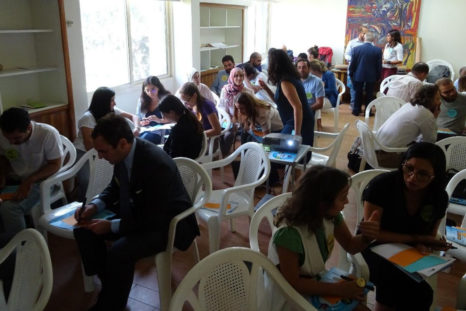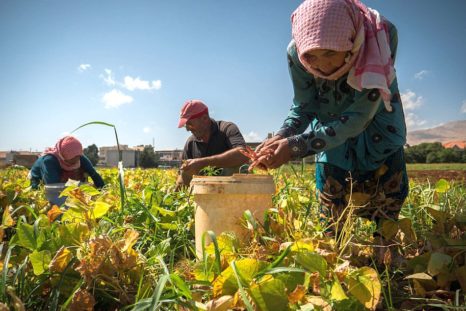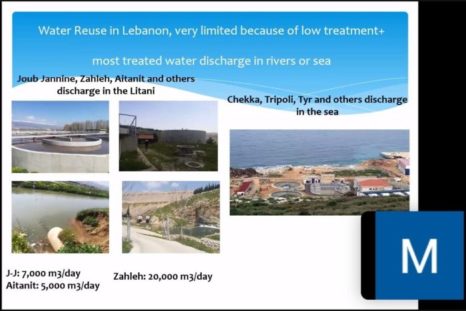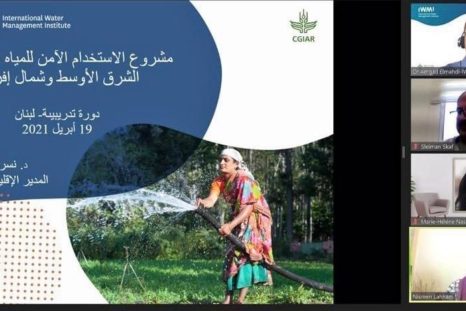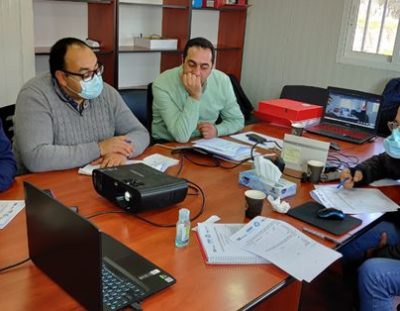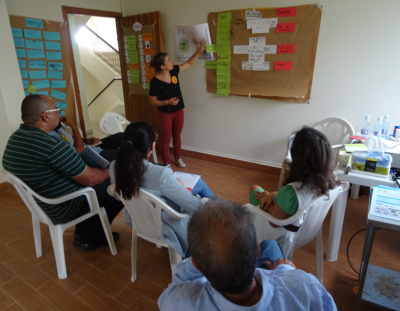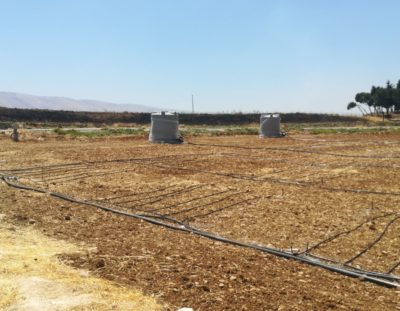Lebanon
November 18, 2024The success of these standards will depend on support from government agencies, international organizations, and the farming community. It will also require ongoing efforts to improve the country’s wastewater infrastructure.
October 25, 2022Increasing water shortages in Lebanon has made informal water reuse become a common practice. In the dry summer months, reusing treated (or untreated) wastewater has helped farmers compensate for their irrigation needs and alleviate pressure on freshwater.
September 16, 2022Water scarcity and pollution are major threats for human development in the Middle East, and Lebanon is no exception. Wastewater treatment and its reuse in agriculture can contribute to addressing the increasing water crisis in the region. But, what is the actual potential of water reuse as a solution for agriculture in Lebanon?
June 13, 2022Lebanon is experiencing several crises: political, economic, and financial, and the water sector is also paying the price.
The country, located at the crossroads of the Mediterranean Basin and the Arab hinterland, is found in one of the most vulnerable places in the world to climate change, but it is human interference that plays the bigger part in water systems’ degradation.
April 9, 2022Since 2018, IWMI has supported the Lebanese government to develop its water reuse policies through the ReWater MENA initiative.
June 20, 2021On June 14th, 2021, the International Water Management Institute (IWMI), organized the 2nd ‘National Learning Alliance’ (NLA) in Lebanon in the framework of the ReWater MENA project. The meeting was organized by IWMI MENA regional office and took place online, gathering a large group of key stakeholders from the water, wastewater, and irrigation sectors in Lebanon.
May 11, 2021The workshop aims to build and strengthen the capacities of different stakeholders and participants from Lebanon in the field of safe use of wastewater, building on four training modules. The modules include: Stakeholders’ acceptance and gender integration in reuse interventions, assessing the Economic Feasibility for Integrated Wastewater Reuse (WWR) Projects: From Formulation to Reporting, Governance and Reuse Safety Plans, and Water Reuse Technologies.
February 15, 2021On Monday 15 February 2021, a meeting was held at the premises of the Bekaa Water Establishment (Zahleh) to launch the survey that will be conducted with farmers in the framework of the Water Reuse Local Studies conducted by ReWater MENA and its partners in Lebanon.
October 14, 2019On Thursday 3rd of October (2019), the ReWater MENA project invited a diverse group of approximately 35 stakeholders to join the project’s first National Learning Alliance (NLA). The NLA took place at the Lebanese Agricultural Research Institute (LARI) in Fanar-Lebanon where the group of participants had the opportunity to discuss and share ideas around to the potential of using recycled water in agriculture in Lebanon.
August 18, 2019In July 2019, the Lebanese Agricultural Research Institute (LARI), a key partner of the ReWater MENA project in Lebanon, kicked off a two year-field trial in the Bekaa valley. Established at LARI’s Tel Amara station in central Bekaa, on the right bank of the Litani River, this pilot will serve to assess the health and environmental risks associated with irrigating fresh vegetables from different water sources of varying quality.
November 18, 2024
The success of these standards will depend on support from government agencies, international organizations, and the farming community. It will also require ongoing efforts to improve the country’s wastewater infrastructure.
October 25, 2022
Increasing water shortages in Lebanon has made informal water reuse become a common practice. In the dry summer months, reusing treated (or untreated) wastewater has helped farmers compensate for their irrigation needs and alleviate pressure on freshwater.
September 16, 2022
Water scarcity and pollution are major threats for human development in the Middle East, and Lebanon is no exception. Wastewater treatment and its reuse in agriculture can contribute to addressing the increasing water crisis in the region. But, what is the actual potential of water reuse as a solution for agriculture in Lebanon?
June 13, 2022
Lebanon is experiencing several crises: political, economic, and financial, and the water sector is also paying the price.
The country, located at the crossroads of the Mediterranean Basin and the Arab hinterland, is found in one of the most vulnerable places in the world to climate change, but it is human interference that plays the bigger part in water systems’ degradation.
April 9, 2022
Since 2018, IWMI has supported the Lebanese government to develop its water reuse policies through the ReWater MENA initiative.
June 20, 2021
On June 14th, 2021, the International Water Management Institute (IWMI), organized the 2nd ‘National Learning Alliance’ (NLA) in Lebanon in the framework of the ReWater MENA project. The meeting was organized by IWMI MENA regional office and took place online, gathering a large group of key stakeholders from the water, wastewater, and irrigation sectors in Lebanon.
May 11, 2021
The workshop aims to build and strengthen the capacities of different stakeholders and participants from Lebanon in the field of safe use of wastewater, building on four training modules. The modules include: Stakeholders’ acceptance and gender integration in reuse interventions, assessing the Economic Feasibility for Integrated Wastewater Reuse (WWR) Projects: From Formulation to Reporting, Governance and Reuse Safety Plans, and Water Reuse Technologies.
February 15, 2021
On Monday 15 February 2021, a meeting was held at the premises of the Bekaa Water Establishment (Zahleh) to launch the survey that will be conducted with farmers in the framework of the Water Reuse Local Studies conducted by ReWater MENA and its partners in Lebanon.
October 14, 2019
On Thursday 3rd of October (2019), the ReWater MENA project invited a diverse group of approximately 35 stakeholders to join the project’s first National Learning Alliance (NLA). The NLA took place at the Lebanese Agricultural Research Institute (LARI) in Fanar-Lebanon where the group of participants had the opportunity to discuss and share ideas around to the potential of using recycled water in agriculture in Lebanon.
August 18, 2019
In July 2019, the Lebanese Agricultural Research Institute (LARI), a key partner of the ReWater MENA project in Lebanon, kicked off a two year-field trial in the Bekaa valley. Established at LARI’s Tel Amara station in central Bekaa, on the right bank of the Litani River, this pilot will serve to assess the health and environmental risks associated with irrigating fresh vegetables from different water sources of varying quality.

